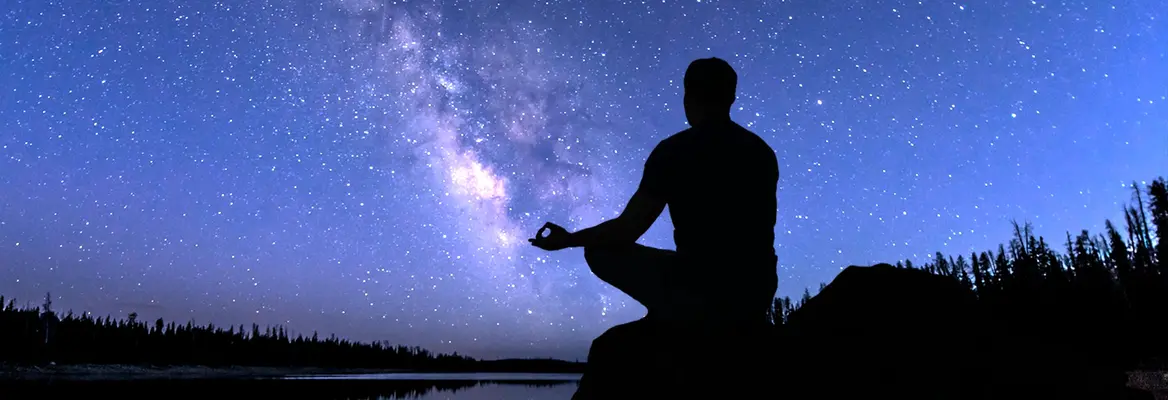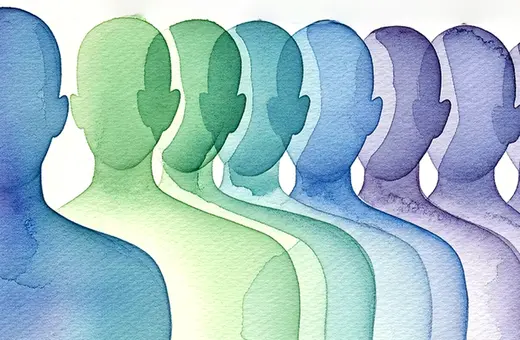For decades, our best intuitions have told us that consciousness is a product of complex brain processes, creating the taste of coffee or the smell of a rose. However, New York Times bestselling author, Annaka Harris, argues this view has been shattered by modern neuroscience. In this exclusive, in-depth article Harris draws from her recent documentary, Lights On, taking inspiration from the work of leading physicists, like Carlo Rovelli and Lee Smolin, and explains why consciousness is the most fundamental thing in the universe.
I made the case in my book, Conscious, that the assumption that consciousness arises out of complex processing in the brain is likely false, and the reality may be that consciousness runs deeper in nature than the sciences have previously assumed. I believe the reason for such widespread confusion about the emergence of consciousness is in large part due to powerful intuitions we have about the mind and brain that give us an incorrect picture of the underlying reality. These false intuitions have been revealed to us time and again through modern neuroscience, but the culture has barely begun to grapple with their implications, both inside and outside the sciences.
One central problem the science of consciousness faces is that we can only locate conscious processes in nature through high levels of report and communication. This is one of the reasons we have assumed consciousness only arises in complex systems, rather than being something much more basic in nature, as it’s only in systems that are similar to us that we can find evidence (reports) of consciousness. But at the very least, the work with split-brain and locked-in patients should have radically shifted our reliance on reportability at this point. Ask split-brain patient Julie what she’s experiencing, and you’ll get the impression that none of the input to her right hemisphere is consciously experienced (which we now know is not the case). How could we even begin to guess whether there is a felt experience associated with a strolling snail, or the processing of the kidneys, for that matter? All we have to go on is an analogy to where we find reports of conscious experience, even within in a human brain. Yes, I feel that—okay that processing is conscious. No, I don’t feel that—okay, no felt experience associated with that processing. We’re on very shaky ground here.
___
Most, if not all, of our scientific investigations of consciousness are unwittingly rooted in a blind assumption.
___
Additionally, the sciences have always assumed that consciousness (feeling fear, pain, and all the rest) provides an advantage to living systems, giving us reason to think consciousness evolved in complex life forms. But modern neuroscience continues to give us pause here as well. Our increasing understanding of unconscious brain processes that take place “in the dark” expose the illusory nature of the feeling that our conscious experiences are the proximate cause of our behavior in many instances. In reality, our response to perceived danger, for example—the sight of a bear or the sound of a rattlesnake—is well underway before we become conscious of it, so the feeling of fear does not trigger the response in the way we assume it does. The conscious awareness of the bear, as well as the related emotions, come at the tail end of a stream of brain processing and physical response of the body. (Many people notice in emergencies that they have begun running for their life before they are conscious of what they’re running from.)





















Join the conversation